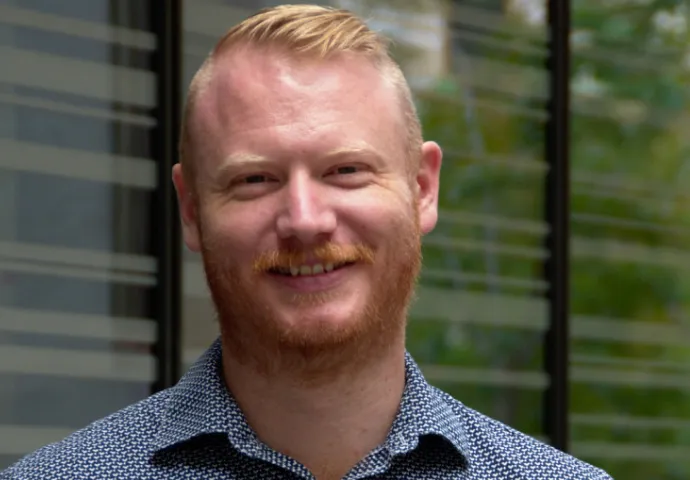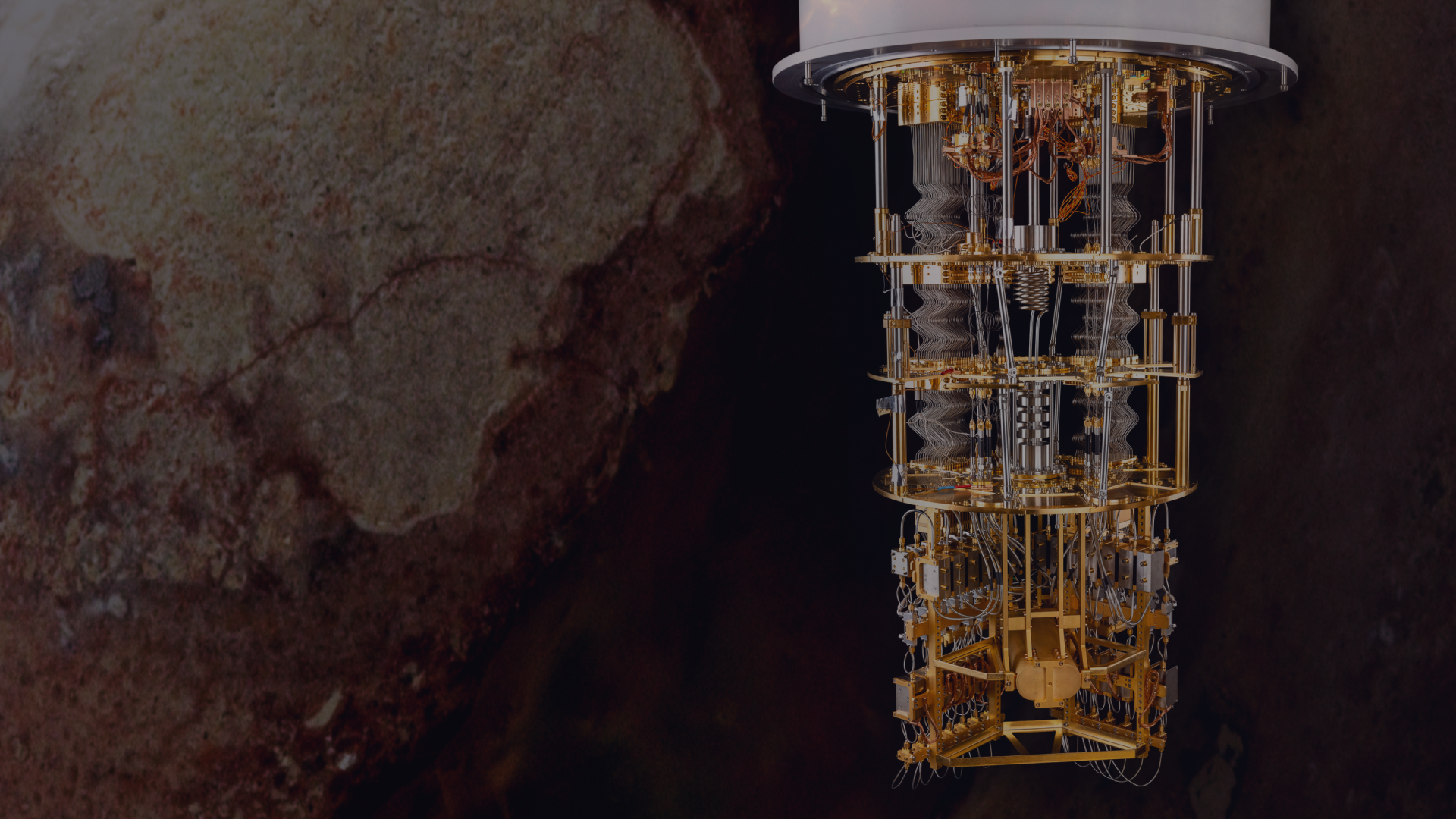Presenting our groundbreaking quantum research at APS March Meeting 2022


We are incredibly excited to share our groundbreaking quantum research with the APS community both in person and online this year at the APS March Meeting 2022!
We will be presenting six talks across a range of topics - spanning the use of machine learning to autonomously improve quantum logic and algorithms through to accelerating vehicle routing problems on quantum computers, and more.
Q-CTRL abstracts
- Dr Yuval Baum, Lead Scientist, Quantum Control, Improving quantum computer performance with machine learning. [Invitation only, Focus Session]
- Dr Christopher Bentley, Lead Solutions Engineer, Quantum Control, Accelerating vehicle routing problems on quantum computers.
- Dr Thomas M Stace, Principal Scientist, Quantum Error Correction, Automated precise multi-parameter estimation for quantum devices.
- Dr Anurag Mishra, Lead Software Engineer, Quantum Product, Improving the performance of algorithms on NISQ-Devices through automated control design and implementation.
- Dr Pranav S Mundada, Senior Scientist, Quantum Integration, Measurement efficient automated multi-level qudit pulse optimization on quantum devices.
- Dr Russell Anderson, Lead Scientist, Quantum Sensing, Improving the sensitivity of cold-atom inertial sensors using robust control.

Title: Improving quantum computer performance with machine learning [Invitation only, Focus Session]
Speaker: Dr Yuval Baum, Lead Scientist, Quantum Control
Session: T28.00001
Time: 11:30 AM–12:06 PM Thursday, March 17, 2022
Room: McCormick Place W-190A
Quantum control provides a powerful framework for the optimization of quantum device performance without requiring changes in the underlying hardware, augmenting processes from gate design and calibration through to measurement. The use of machine learning and measurement-based feedback control in particular provides a path to efficiently control large systems, by allowing autonomous agents to determine the best control solutions across without the need for a detailed Hamiltonian model.
We experimentally demonstrate how this strategy can enhance the success probability of a maximally compiled Bernstein Vazirani algorithm by up to 1000 times using a 16-qubit superconducting quantum computer. We first compare strategies to autonomously optimize individual multiqubit cross-resonance gates using deep reinforcement learning in runtime, black-box optimization, and automated parameterized gate-calibration. These experiments yield gates which outperform the best "traditionally" designed and calibrated alternatives, show robustness to system drift up to a month, and can be scalably optimized in parallel across entire devices.
Next, we present an automated backend compilation routine to inject optimized two-qubit and identity gates into precompiled circuits. We also introduce a highly scalable neural-network-based measurement-error-mitigation strategy which exponentially reduces calibration overhead and an improved compilation method for circuit depth reduction. Taken together we conclude by presenting a range of algorithmic benchmarking results for different system sizes, revealing an exponential benefit in control-enhancement with system size.

Title: Accelerating vehicle routing problems on quantum computers
Speaker: Dr Christopher Bentley, Lead Solution Engineer, Quantum Control
Session: G36.00010
Time: 1:42 PM–1:54 PM, Tuesday, March 15, 2022
Room: McCormick Place W-194A
Vehicle routing problems (VRPs) are ubiquitous in transport and logistics optimization. Quantum approximate optimization algorithms are well-suited to these classically-hard combinatorial optimization problems, offering potential quantum advantage. However these algorithms should not be naively applied; the details of implementation are critical to the algorithm performance and can provide exponential enhancement.
We discuss implementation decisions from the high-level initial problem formulation through to the low-level logic gate design. Judicious choices of the problem encoding, the QAOA classical optimization procedure, and the quantum unitary operators can greatly reduce the search space and enhance optimization performance. Further algorithmic enhancement on noise-susceptible quantum hardware can be achieved through lower-level control: we optimize and replace the quantum gates that constitute the quantum circuit. We present the impact of this end-to-end algorithm design on algorithm performance through simulation and hardware results.

Title: Automated precise multi-parameter estimation for quantum devices
Speaker: Dr Thomas M Stace, Principal Scientist, Quantum Error Correction
Session: A36.00011
Time: 10:00 AM–10:12 AM, Monday, March 14, 2022
Room: McCormick Place W-194A
Hardware built for quantum computing is designed with an ideal model in mind. However, physically realized systems may have additional elements whose effects on the rest of the system are typically accounted for in effective models. In such cases, there is ambiguity in which model “correctly” describes the system - the effective model, or a more complete physical model that includes the dynamics in a larger Hilbert space.
We present an efficient method for fitting Hamiltonian parameters using automated differentiation in a flexible graph representation for quantum models. Our approach works with noisy experimental data and is able to make statistical estimates of the parameter uncertainty. We demonstrate these approaches with an example where a coupling resonator is used to mediate multi-qubit gates between superconducting qubits.
We compare an effective model that eliminates the coupling resonator with a more fundamental model that retains the full dynamics and Hilbert space of the qubit-coupler-qubit system. Using our model fitting techniques we are able to use information criteria to compare amongst models based on accuracy and predictive power, in the presence of noise and parameter uncertainty. This has implications for hardware system identification and design cycles.

Title: Improving the performance of algorithms on NISQ-Devices through automated control design and implementation
Speaker: Dr Anurag Mishra, Lead Software Engineer, Quantum Product
Session: Y41.00005
Time: 9:12 AM–9:24 AM, Friday, March 18, 2022
Room: McCormick Place W-196C
Current NISQ era quantum computing devices suffer from various sources of noise, such as leakage, dephasing and cross-talks which makes running useful quantum algorithms especially challenging on such devices.
Our team recently demonstrated that quantum control can be used to improve the performance of individual gates, through automated-closed loop optimization of microwave pulses. These control-design techniques consistently nullify coherent errors on at least half of the CNOT gates on a quantum device, with others limited by T1. Previously, it was not clear how these improvements would impact the ultimate performance of high level quantum algorithms.
We investigate how drop-in replacement of optimized control pulses can improve the performance of algorithms with potential NISQ advantage, namely, quantum fourier transform (QFT), Bernstein-Vazirani and QAOA in both simulation and experiment.
We execute a fully autonomous parallel gate optimization across multiqubit systems, and with the resulting optimized gates see consistent improvements in algorithm performance. In IBM systems with no further change to compilation strategy, drop-in gate replacement delivers at least a 30% improvement to the success probability of an accurate outcome. We observe that deterministic algorithms benefit most from reduction of coherent gate errors.

Title: Measurement efficient automated multi-level qudit pulse optimization on quantum devices*
Speaker: Dr Pranav S Mundada, Senior Scientist, Quantum Integration
Session: G35.000010
Time: 1:18 PM–1:30 PM, Tuesday, March 15, 2022
Room: McCormick Place W-193B
Harnessing the existing higher levels in the cQED qudit can significantly increase the resourcefulness of NISQ era quantum devices. However, increased deviations and complexity in the modeling of higher levels, makes it challenging to tune-up high-fidelity gates on a qudit.
We investigate using a model-free pulse optimization of a U(3) gate. We demonstrate that parameterizing the pulse with Hanning windowed basis functions allow for more efficient optimization, as they reduce the number of parameters required, and ensure strict bandwidth limits. We also simplify the cost function and use only state populations instead of full state tomography, reducing the number of measurements required at each evaluation.
Our optimization protocol starts with no prior knowledge about the ideal pulse parameters and obtains a gate error of 2e-3 which is primarily coherence limited. Unlike traditional model-based optimization, this model-free approach enables optimization of multi-qutrit gates and is directly applicable to other qubit architectures including protected qubits.
* Acknowledgements: The experiments were run on the platform provided by Lawrence Livermore National Laboratories

Title: Improving the sensitivity of cold-atom inertial sensors using robust control
Speaker: Dr Russell Anderson, Lead Scientist, Quantum Sensing
Session: Q34.00009
Time: 5:00 PM–5:12 PM, Wednesday, March 16, 2022
Room: McCormick Place W-193A
Cold-atom sensors have demonstrated state-of-the-art inertial measurements in laboratory environments. Future generations of atomic inertial sensors aim to achieve this performance in compact and rugged form factors, enabling new capabilities in navigation, hydrology, and space-based gravimetry. However, there are significant challenges to achieving laboratory performance in real-world environments. In particular, deploying a cold-atom sensor onboard a moving platform (e.g. a ship or plane) degrades measurement sensitivity by many orders of magnitude, or even prevents sensor operation altogether.
Here we show that error-robust quantum control can suppress dominant noise sources due to platform motion, reducing the performance gap between laboratory operation and real-world field deployment. We use a custom-built flexible optimization package, which exploits automated analytic differentiation and stochastic optimization, to efficiently create broadband robust beamsplitter and mirror pulses. Through simulated operation under realistic vehicle motion, we verify that these robust control solutions suppress the effect of transverse accelerations considerably in a single-axis sensor.
Improving quantum algorithms by up to 9,000x
It’s a huge year for our research! At this year’s conference, we will also unveil the technology behind our demonstrations enabling up to 9,000x improvements in quantum algorithms executed on commercial quantum computers.
The hosted workshop - Boost performance, improve characterization and accelerate simulation of your quantum hardware - will teach you how you can use our software tools to improve and automate quantum hardware: the basis of our 9,000x performance-enhancement demonstrations.
After the workshop you will be able to put all of the building blocks of building error-robustness and autonomy to work in your own research - from closed-loop AI-driven gate optimization through to error-robust compilation.
Get in touch
If you have any questions on any of the topics presented, you can visit our team at the Q-CTRL Booth during the exhibition or contact us directly.


